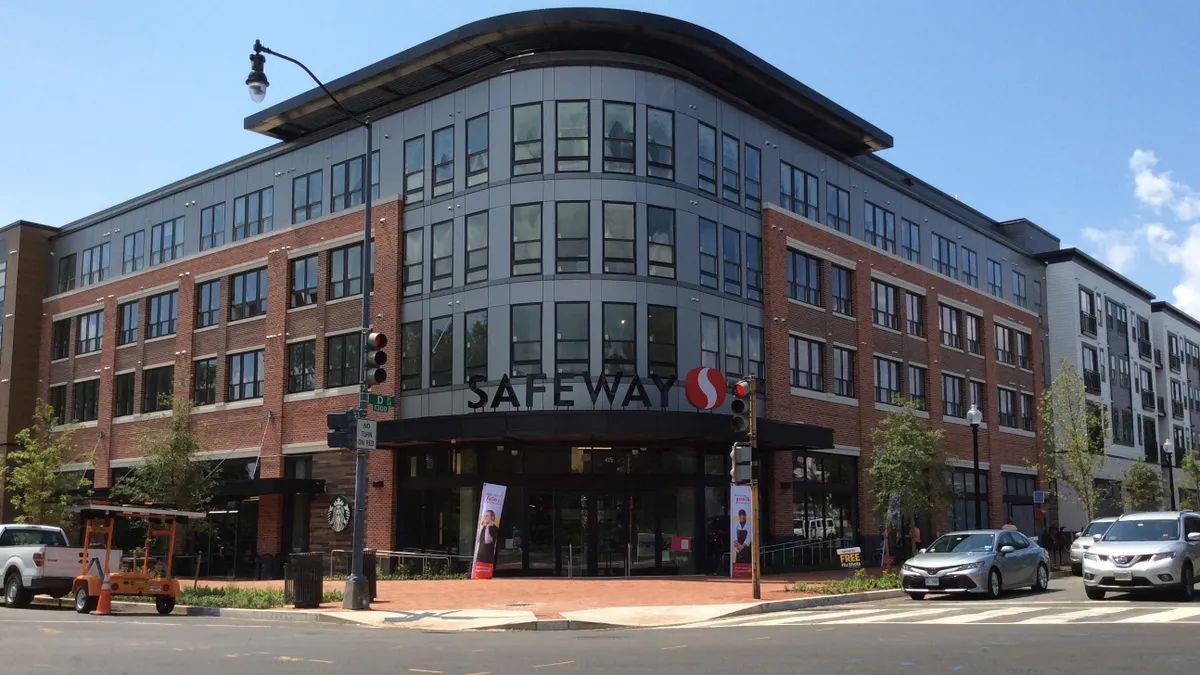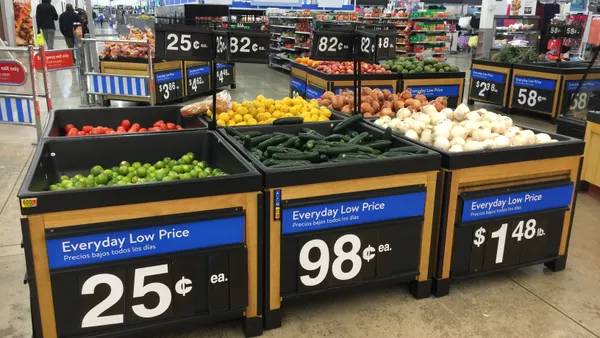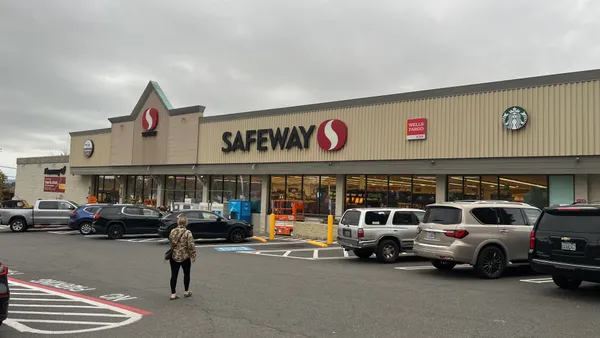Dive Brief:
- Albertsons posted $18.6 billion in net sales and other revenue during the second quarter, up about 1.6% compared with the same period last year, the supermarket operator announced Tuesday.
- Same-store sales moved ahead 2.5%, driven in part by robust growth in pharmacy sales.
- Albertsons is facing multiple headwinds as it moves through 2024, including continuing uncertainty surrounding its proposed merger with Kroger.
Dive Insight:
While Albertsons CEO Vivek Sankaran sounded notes of optimism about the company’s prospects in its earnings release, he noted that its business is becoming more reliant on its pharmacy and digital businesses, which carry lower margins than other aspects of the retailer’s operations.
The company is also facing continued financial pressures stemming from the cost of wages and benefits for associates and an “increasingly competitive backdrop,” Sankaran said in a statement, adding that Albertsons expects to partially offset headwinds by improving productivity.
Albertsons said its digital sales grew 24% year over year in Q2, building on a similar performance during the first quarter. The company’s loyalty member rolls expanded during the quarter by 15%, to 43 million. In addition, Albertsons saw “accelerated growth” during Q2, which ended Sept. 7, in its Albertsons Media Collective in-house retail media unit, Sankaran said.
Albertsons’ same-store sales growth represented the company’s best performance by that measure since the third quarter of fiscal 2023, when the figure came in at 2.9%. But the grocer’s profitability was down, with net income falling nearly 45% year over year, to $146 million.
The company completed 44 store remodeling projects and opened two stores during the first 28 weeks of its current fiscal year, the announcement noted.
Albertsons did not hold an earnings call in light of its pending effort to merge with Kroger. The grocers are awaiting a decision from a federal judge in Oregon over an effort by the Federal Trade Commission to block the merger, and they are also facing legal challenges to the proposed deal from the attorneys general of Colorado and Washington state.














